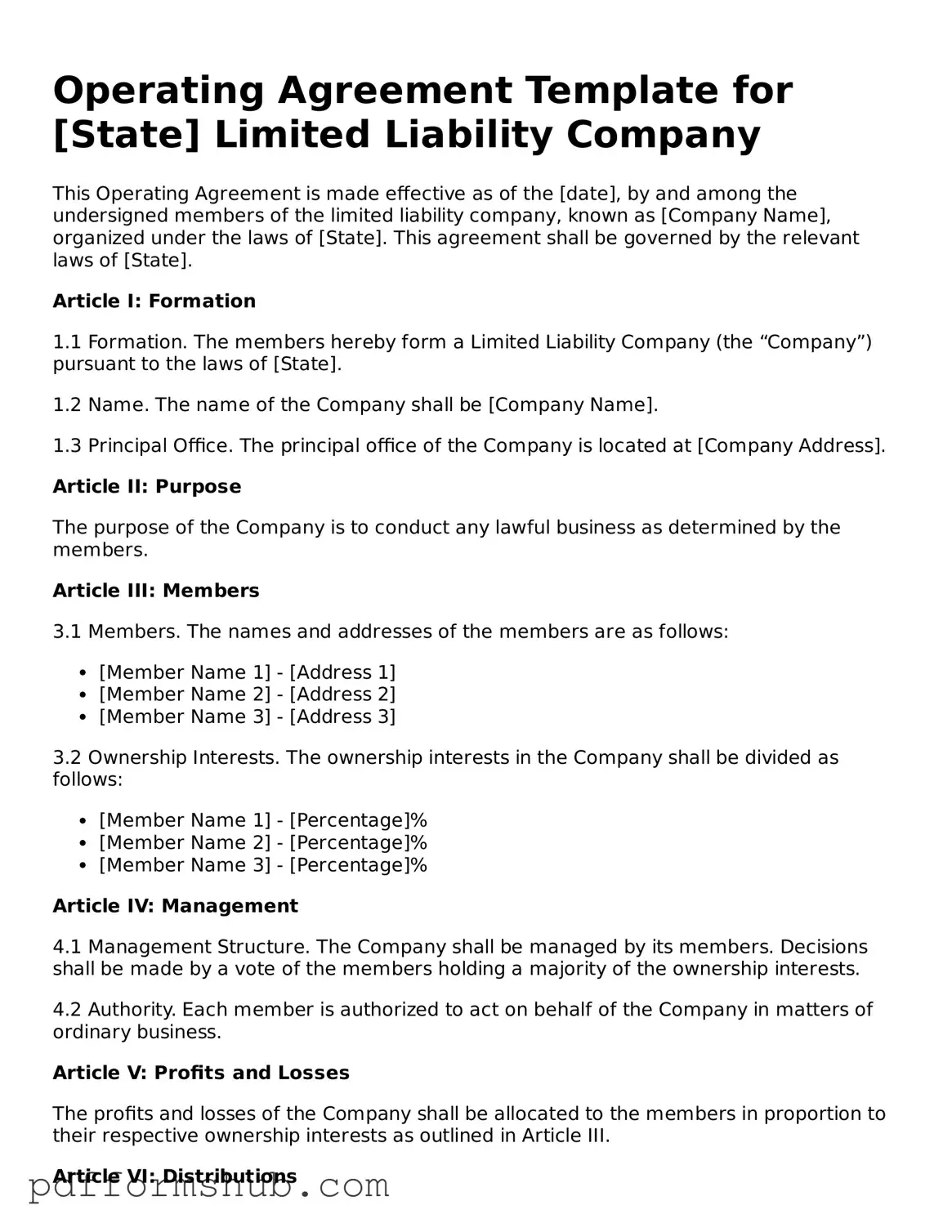Valid Operating Agreement Form
An Operating Agreement is a vital document that outlines the management structure and operational procedures of a Limited Liability Company (LLC). This agreement serves as a roadmap for members, detailing their rights, responsibilities, and the distribution of profits. Understanding the significance of this form is essential for any LLC, so be sure to fill it out by clicking the button below.
Customize Form

Valid Operating Agreement Form
Customize Form

Customize Form
or
Free PDF Form
Short deadline? Complete this form now
Complete Operating Agreement online without printing hassles.